Arriving to the festival
“I’m going to cry if they play Close in the Distance!”
It’s Sunday evening in late October. I’m in London for the Final Fantasy XIV Celebration. Thousands have gathered in the convention center’s main hall for the closing ceremony: a live performance from The Primals – the metal band composed entirely of developers behind Final Fantasy XIV.
I don’t know the person dressed as a White Mage, nor their friends, a Mog, and what looks to be a pirate. But they’re all animated about the possibility of hearing their soundtrack favorites any minute now.
Before this weekend, my experience with Final Fantasy XIV was limited. I played it when it first launched ten years ago, and didn’t much care for it. I went back when A Realm Reborn – the great overhaul at the hands of Naoki Yoshida – launched. At that time, I enjoyed it a lot more.
But Final Fantasy XIV is a massive multiplayer online role-playing game, an MMORPG. It demands time and dedication. It’s better with a large group of social friends, who can also dedicate time to making the most of the vast story and open world. I have neither of those things, which makes getting into any MMO extremely difficult.
Despite this, I returned to FFXIV regularly, mostly with every expansion, to see where Yoshida and his team were taking the critically acclaimed story. While MMOs are rarely known for their writing, FFXIV is one of the rarities in this field. Many Final Fantasy fans will argue its main campaign ranks among the best in the franchise.
So, when I received an invitation from Square Enix to come and see experience the 10th Anniversary Fan Celebration in person, I couldn’t say no.
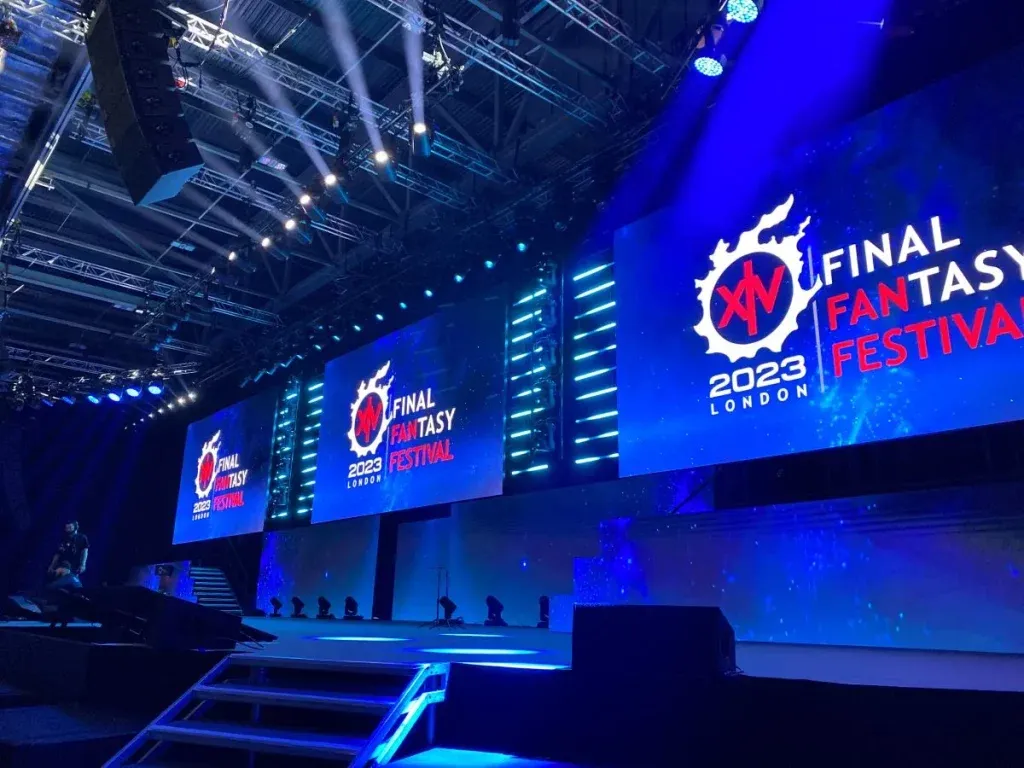
Opening day
The festivities begin early. By the time I and a group of other journalists, influencers, and FFXIV veterans pass through security, thousands of others are lining up for a chance at the best seats in the house.
London’s Excel Center, a massive hub of multiple conventions taking place at once, is appropriately kitted out for the event. Areas are dressed up to look like famous places from the game. Thanalan, Black Shroud, and La Noscea are all accounted for. Gold Saucer already attracts an audience. And, naturally, there’s a fishing game.
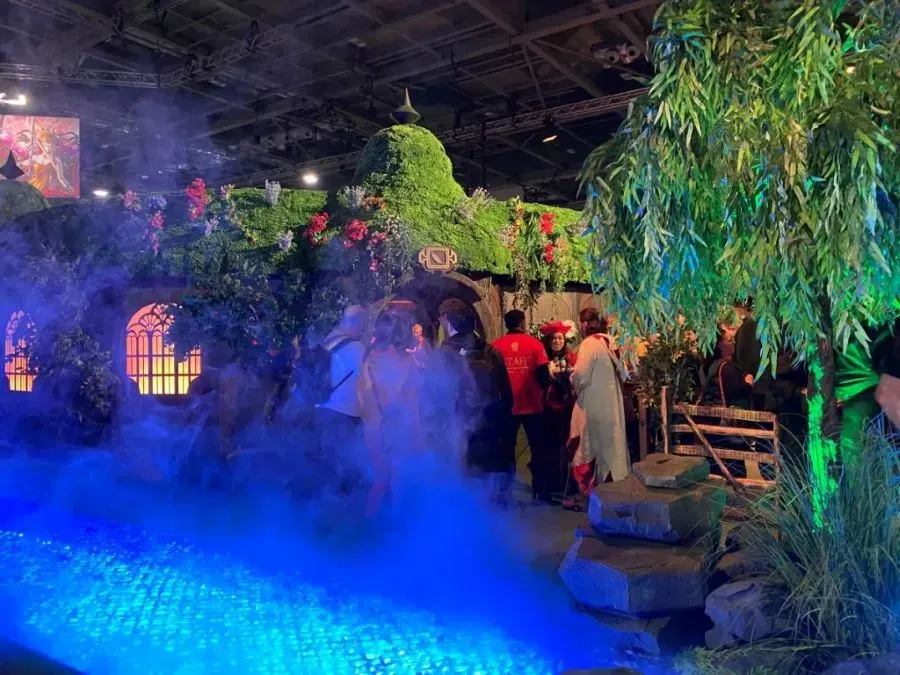
It feels odd at first, like something is missing. Then I realize that it’s the merch booths, the advertisements, and the general gaudiness that usually goes with big conventions. There is swag, and a long line to buy some, but it’s not the primary focus here.
Others in the group assure me that this is how it’s always been. We’re here for the game, the friends, and to have fun.
Later, as I take a breather in the quiet area set aside for neurodivergent people like myself, I meet one of the PR Managers working on the game.
“Before I worked here, I played the game. I still do, but now it just hits different,” he says. “All of us are fans first.”
It’s a sentiment that is repeated multiple times over the weekend. Not just at the event itself, but at dinner, and evening drinks. Whoever I talk to wants to tell me about their characters, how long they’ve played, and how they’ve met lifelong friends through the game.
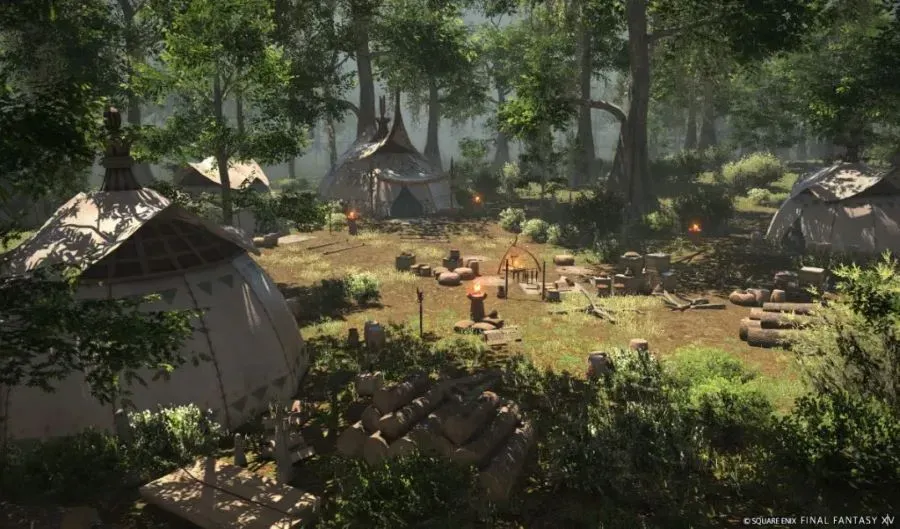
The fathers of Final Fantasy
Our first attraction is the keynote, featuring Yoshida and special guest star Hironobu Sakaguchi, the father of Final Fantasy. I find myself surprisingly excited. Yoshida’s work on both FFXIV and XVI is stellar, and I got a chance to interview him earlier in the year. He’s an eloquent, fiercely dedicated and passionate artist who understands the material like no other.
Unless that other is Sakaguchi, who, it wouldn’t be overstating to say, shaped a great deal of adolescence. His work on Final Fantasy and other RPGs during the last 30 years is peerless. Most who got into gaming in the 90s will probably point to something or other that he worked on as an influence. Sadly, I don’t get a chance to tell him any of this in person during the weekend. Every opportunity slips by. One day, hopefully.
Once everyone is seated, the lights dim, epic music soars, and we’re treated to the trailer for Dawntrail, the next expansion in the FFXIV saga. The audience roars in approval at every character introduction, before breaking out into applause at the promise of new adventures arriving already next summer.
Where the previous expansion, Endwalker, clearly signaled the end of the main storyline that had continued for the past decade, Dawntrail is a more hopeful beginning of something completely different.
“It’s as much of a new beginning as our Realm Reborn update was”, Yoshida says a few months later at the Tokyo Fan Festival.
As the trailer wraps up, it’s Yoshida’s turn to take the stage. Engulfed in light, his entrance is nothing short of bombastic. Yet it’s the kind of self-effacing and funny introduction fans are accustomed to. It’s all a laugh, even when it’s deadly serious. Dressed in a beautifully tailored cosplay of the new character class, Viper, he’s engulfed in a tsunami of approval from the audience.
When I meet him later for a Q&A session almost twelve hours later, Yoshida is still wearing the cosplay outfit, complete with two swords that he happily swings around. “Now that’s dedication”, another member of the press smiles next to me. One has to agree.
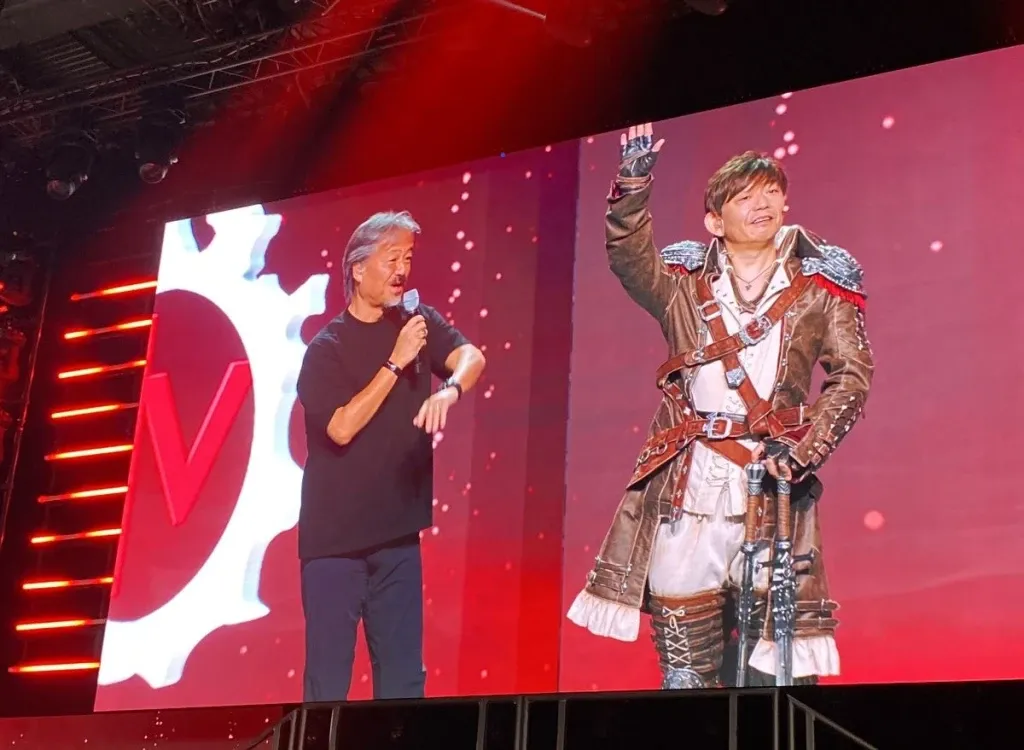
On stage, Sakaguchi explains to a beaming Yoshida how deeply invested he is into Final Fantasy XIV. Not as a developer or father of the series, but as a fan. “I brought my personal controller, which I modded, so I could play more effectively,” Sakaguchi explains.
He points to the wide array of computers and consoles lined up for gaming. “I can’t wait to join everyone for a few raids this weekend.”
The audience roars. Later, Sakaguchi can be spotted doing exactly that between panels.
A visibly moved Yoshida reflects on this when we meet that evening. “Truth be told, I had not anticipated that Sakaguchi-san would tackle the Ultimate Dungeon content.”
He considers this for a moment longer. “To have the founding creator of the franchise play through Final Fantasy XIV, and enjoy it so. It makes us realize that what we’ve been doing for the past 13 years really resonates with the fans, and serves as a source of motivation for us in our development.”
I pause. There it is again, 13 years.
That’s an insanely long time for any game to stay relevant. But it’s also an even longer time to consider for anyone new joining in at this stage.
When I spoke with Yoshida before the Fan Fest, I brought up my concerns. Not just in general, but for myself. Where does one begin at this point?
“When you hear ‘the first 10 years’, some people might think “there’s absolutely no way I can catch up with that!””, Yoshida says.
“But if you were to follow the main scenario quests in a straightforward manner, then it’ll only take a few months to catch up sufficiently. Player skills will get better in that time, and all instanced dungeons in the main scenario quests can now be cleared with a party of NPC allies, so it’s even easier to enjoy it as a standalone RPG with a focus on the story. So please, don’t be scared!”
Later, as I wander the hallways checking out the events, I overhear a similar conversation. One of the developers is taking photos with fans, when one of the cosplayers timidly expresses they haven’t dared to start the game because of how big it is. Instead of astonishment or questioning, the developer instead reassures them. “It’s meant to be fun, you can join whenever and how you like. We’re here for you.”
It’s one of many moments that weekend which make me wonder just what makes this game instill such compassion?
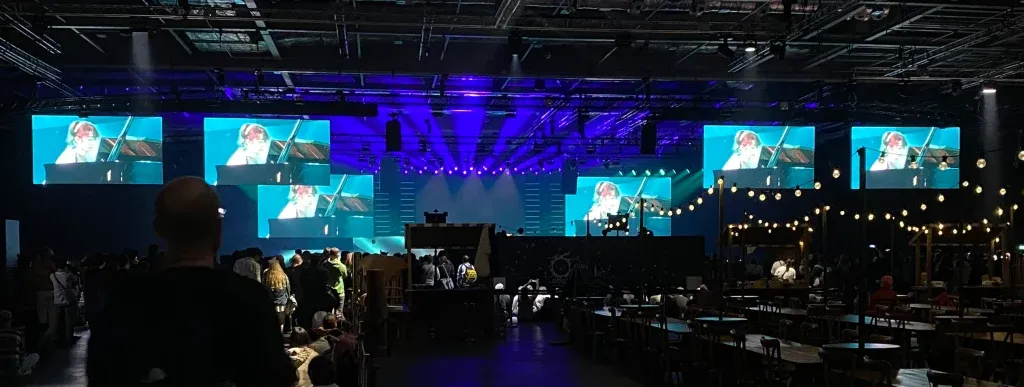
13 years of Final Fantasy XIV
“I’ve been playing for 13 years, even before A Realm Reborn.”
It’s the end of the first evening. The stunning Keiko has finished her show, and we’re back at the hotel for drinks. I ask one of the PR members about their history with the game.
“I met these guys in game, and then I started writing guides, and here I am now.” He explains. “I love what I do, because everyone else does, too.”
In fact, some of them are already planning on sneaking away to their rooms for a quick game. One of the good things about MMO’s is that they run on basically anything, and nearly everyone has their laptops along.
I think back to when was I as passionate about any game or its community. In my teens? Ever? Probably with Final Fantasy VII or IX. But those were single-player experiences. Isolated, to an extent, and at that time Finland barely had any conventions to speak of, let alone for niche RPGs.
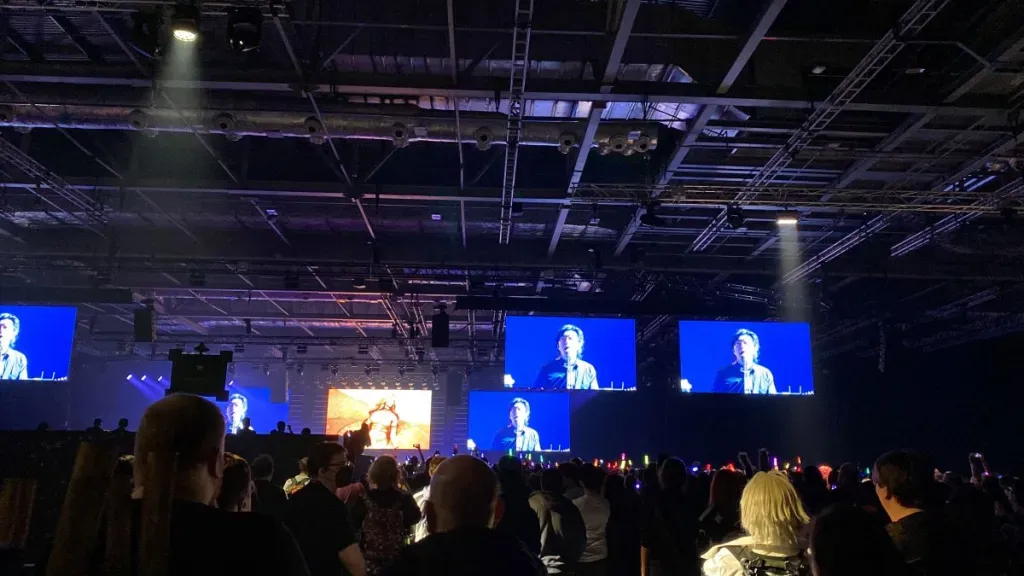
The next morning, I head over to the developer panel.
These things are usually dry and attract only the most devoted fans. Those of us who one day would love to work in games. Not so this time. It’s a packed house, and not just because people are waiting for the next show, everyone is hooked on the showcase.
The presentation itself is interesting, featuring everything from tiny fixes to discussions on where graphical assets come from. I can’t help but chuckle when the developers explain how a patch of grass is specifically from a locale in Finland, as that it had the correct kind of color they liked.
But as I look around during the show, I get that feeling again. I haven’t seen this before. Certainly not at any of the trade shows or other fan festivals that I’ve been to. Everyone is glued to the presentation. They’re engaging with it. Laughing, applauding, murmuring approvingly. There’s a rush of excitement when they hear how an upcoming patch will fix a specific costume.
As we pile out of the event, I ask one of the people next to me what is it about the presentation that’s got people so excited.
“They keep working on these things long after most wouldn’t care,” they say. “And they listen to us, the fans. At the very beginning, some of the textures were basically unusable, they looked awful. Now, the developers join in on the joke, because we’ve all seen how far it’s come.”
They pull out a purple grapefruit plushy from the swag bag. I stare at it, nonplussed. It’s low resolution, apparently deliberately.
“This was one of the original models in the game. It’s a reminder that things change, but for the better.”
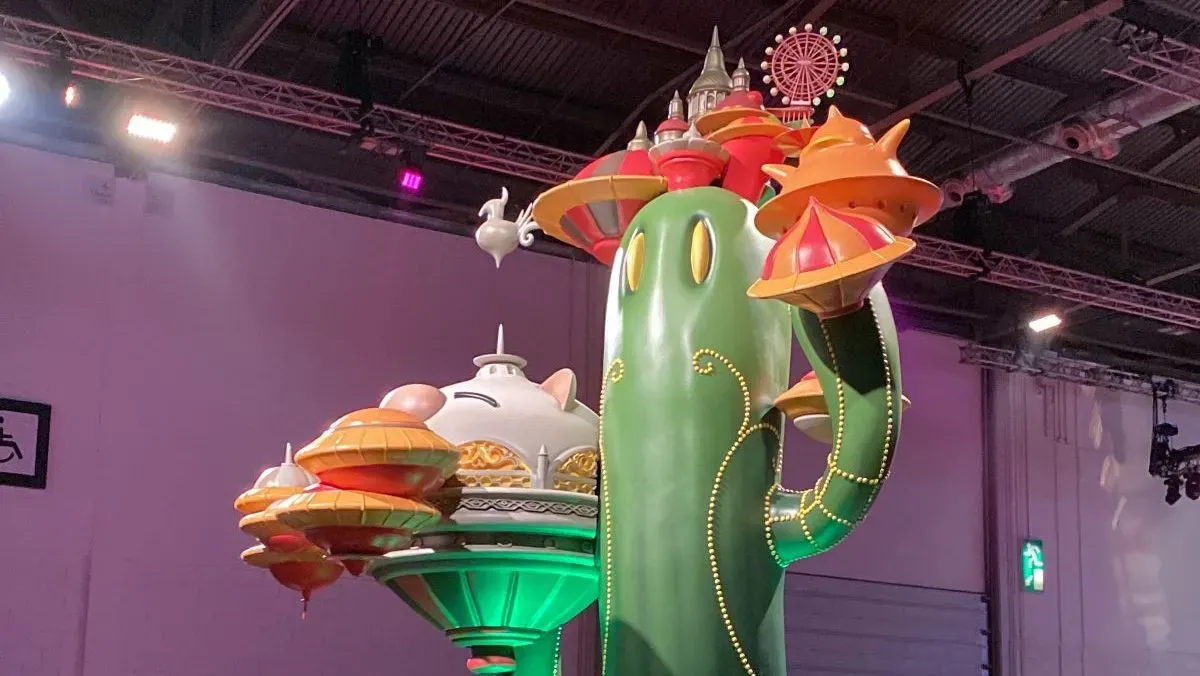
Closing ceremony
The closing ceremony is a big one. The main hall is packed tight.
Masayoshi Soken, composer of the game and guitarist and vocalist in the band, takes the stage.
“Everyone, can you please move a little back. Let’s keep this area for those with disabilities. Remember, jump up, not sideways!”
In an instant, everyone follows orders. During the concert, not a single person breaks ranks. It’s yet another display of kindness that’s so rare in gaming these days.
I hang back from the crowd. My anxiety can’t handle the amount of people combined with the music. But once again, it doesn’t matter. The stage is set so that everyone, regardless of where or who they are, has a great view.
“It’s a huge thing for us that everyone feels welcome,” one of the organizers tells me later. “Many of us have gone to festivals where they didn’t take into consideration those that aren’t neurotypical or are that have limitations. It’s not fun, and we wanted to make sure that didn’t happen here.”
In the front row, Yoshida and Sakaguchi wait for the show to begin. They’re here to cheer on their team as fans.
The show itself is wild, homespun, and earnest. Everyone on stage is talented, and the songs are genuinely catchy. They’re not rock stars in any classic sense, but it doesn’t matter. The audience loves them. There are inside jokes, a meme dance, and, yes, they play Close in the Distance.
As the night draws to a close, the whole team, including a drained Yoshida and Sakaguchi, take the stage.
“Thank you for being here with us,” Yoshida says as he introduces once more everyone from the team. Each is met with rousing applause and chants of their names.
Some cry, overwhelmed by it all. Not just on stage, but in the audience as well. As we leave, I hear one of the cosplayers lament how they’ll miss “the guys.”
“We’ll see them again at the next one,” their friend comforts them.
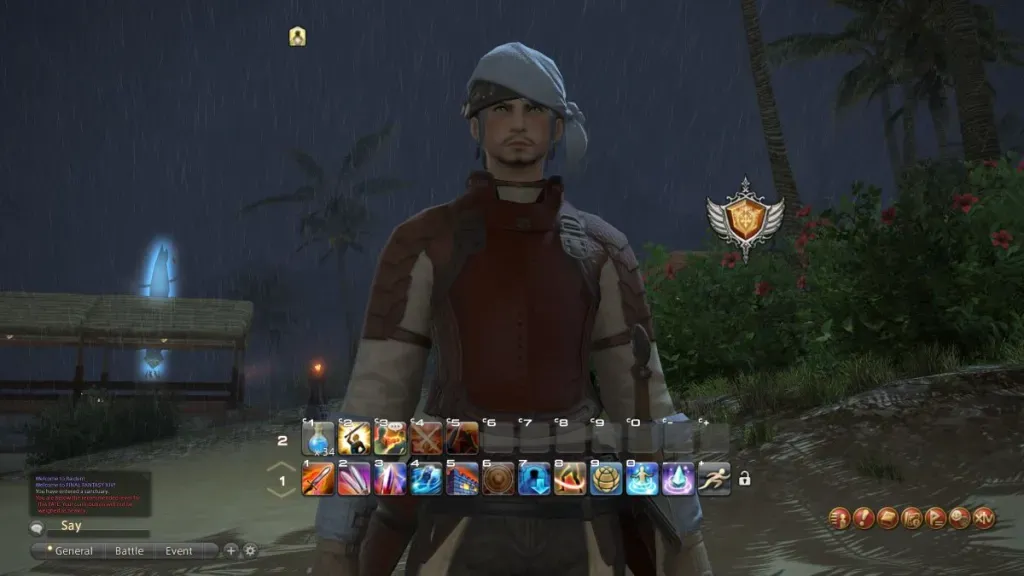
Checking out and back in
As I check out of the hotel the following morning, I ask one of the streamers who specialize in Final Fantasy XIV, if that’s really the case. Do people come back? Is it really something that you can just pick up in a year?
“I do”, they respond.
“And the developers remember us. It’s like seeing pen-pals who live around the world. Besides, they play the game as well. It’s not like we don’t talk for a year. I’m going to see my friends tomorrow, we’re going to explore a new dungeon.”
I fly home. Days pass, and I can’t get the weekend out of my mind.
I download Final Fantasy XIV, and create a new character. As I log in, I wander through the opening areas, suddenly overwhelmed by the amount of choices, menus, and quests.
I face that same paralyzing fear that always comes with MMO’s. I can’t decide what to do first, or what I even should do. I hover the cursor over the “exit game” button.
“Hey, need help?”
It’s a dialog prompt in the left-hand corner. A private message.
“I’m kind of lost, it’s been a long while since the last time.” I type in response.
“I get that. We’ve got a guild for new players, if you want to join. It’s here to get you started so you don’t feel lost.”
I want to ask questions again. What got them started, why they’re still doing it, and many others. Only this time, I think I know why.
It’s this game and its community. Over the past decade, its developers and fans have cultivated a rare haven of kindness. One that welcomes everyone, new and old, on their adventures. Pioneered by Yoshida and his team, it feels exactly like it was described to me.
It feels like meeting friends you didn’t know you had.








